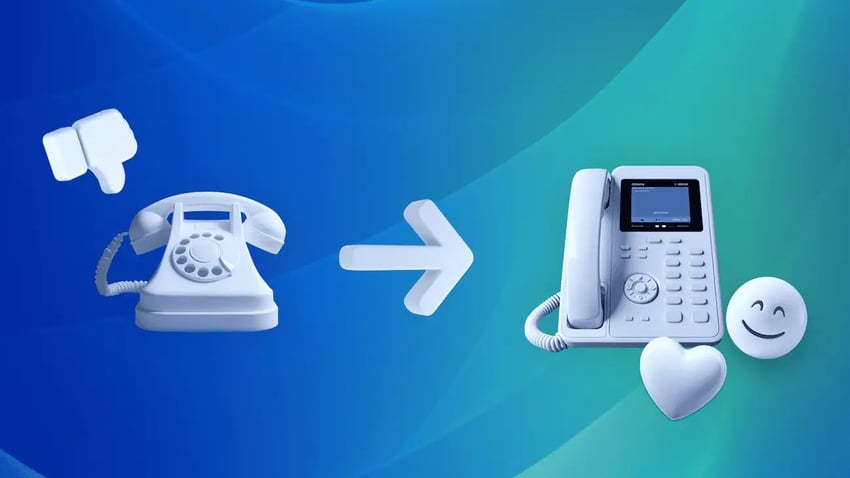This isn’t another future of work article. You are probably sick of reading articles about the future of work. I know I am.
People have been making nonstop predictions about the future of work: What will it bring post the pandemic? What will work look like? What will companies look like?
Do we truly know? Or is it a commercial push by companies and analysts to help us adopt work from home solutions? Or is it truly a sincere look at the world moving forward?
No doubt that there were pivotal moments throughout history where events propelled our civilization in new directions. And this may be one of those moments. Who knows? We will know soon enough.
At the same time, I could argue that life will return to normal — whatever normal means — prior to the pandemic.
All in all, we may just be underestimating our human ability to forget quickly. Let’s not forget that we are creatures of habit and are accustomed to taking the path of least resistance.
In all of the chatter about the future of work, there is something missing for me.
Throughout the pandemic, we have increased our reliance on a few companies that have become essential to how we’re currently living our lives. Amazon, Postmates, Doordash, to quickly name a few, have become part of our daily repertoire. Some popular clothing brands are not far behind. You could argue that in some ways, we’ve become dependent on them.
Why do we like these companies so much that they’ve become a daily occurrence in our lives? They are delivering a world of automated convenience, price efficiency, and effortless experiences right to our doorsteps. And our reliance on them keeps growing.
These companies are separating themselves from the pack in this era of the pandemic. We are quickly becoming accustomed to these experiences, and now we expect these types of experiences from every other company. Customer expectations are being redefined.
The bar for customer experiences has been raised for good. The genie is out of the bottle, and there is no putting it back.
The pandemic changed our world view at a commercial level and how we transact. Today, more than ever – even more so than prior to the pandemic – we live in the era of the customer.
We no longer compare companies with their closest competitors. We compare and draw parallels across all companies we do business with. We expect more from everyone; convenient experiences, effortless interactions, and fair prices.
The real issue I see is that, while the few fortunate companies with access to technical and financial resources are likely to continue to reset customer’s expectations, most businesses out there are struggling to keep up.
Throughout the last few years, the pace of technological change was rapidly increasing. The pandemic accelerated this pace even more. Companies with deep pockets are able to disproportionately increase their investment in innovation, and the gap between the fortunate few tech companies and everyone else is widening.
The numbers speak for themselves. The few leading companies are investing 5x more today on average in technology than all other businesses. The scary problem is that based on HBR data, the number of companies able to grow is dramatically shrinking from a few years ago.
The few large tech companies get to reinforce their dominant positions in the market, leaving everyone else behind.
Do businesses — especially the non-technical ones — have a fighting chance in the new era of automated convenience and effortless experiences?
I think they do. But to survive as the world is becoming more commoditized and hyper rationalized, businesses will need to alter their thinking on building deeper connections and personal relationships with their customers.
Today, businesses need the tools to be able to do this. Tools that help them elevate their abilities to connect with their customers at a deeper level. To match or exceed the experiences of the few leading companies, businesses need to use integrated solutions that do not require them to stitch their customer experience together. They just need them to work.
This part is a bit self-serving. At Nextiva, with the launch of our NextOS platform, we are delivering the solutions to help businesses take their customer experience beyond human limitations.
We have seen this problem coming for a long time, starting in 2014, where suddenly there were a large number of apps coming into the market, most of which did roughly the same thing and a few of which worked together to deliver better outcomes. There’s no argument that many of the point solutions serve a great purpose, but the world has changed, and businesses need to deliver seamless experiences. Most point solutions can’t do this.
More so, most businesses are not technologists, and when point solutions promise easy integrations, they often fall short of expectations.
To be clear, we are not against anyone or any company; we are just for a better way to do things.
We get excited about anybody that helps businesses deliver seamless customer experiences and helps them to grow. Businesses need applications that simply work together out of the box and equip them with automation to reduce mundane tasks. All the while giving them the customer intelligence that we as humans would not be able to gather in the amount of time we need to serve our prospects and customers.
Far more than the pandemic, the long-term impact of intelligence and automation will change the future of work. At Nextiva, we are working on solutions that help businesses leverage both — wherever they are needed to get a competitive edge.
We know that people can do amazing things as long as they have the tools. We believe in the power of human connection.

















 Business Communication
Business Communication 








